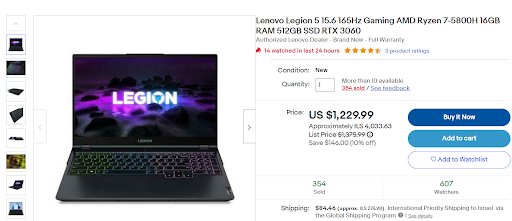Marketplace search engine optimization tips

While the main goal of everybody in the ecommerce world is to attract more customers, sell more products, and earn revenues, most of them neglect one of its most important aspects - findability. Follow these marketplace search engine optimization tips to ensure your potential customers will find your products.
There is a big difference between marketplace searches and search engine searches. While the former attempts to bring the results that will provide the best answer to the search query, marketplace searches attempt to identify which product the user is looking for. This is why SEO for online stores and marketplaces is different from other websites. In marketplaces it is meant to drive up sales.
Using popular keywords is an important part of both types of SEO, but in ecommerce, other attributes, such as images, titles, descriptions, etc. play a major role in improving the performance of products and their discoverability.
Marketplace SEO Tips
Product Data
Product data is all the information sellers provide about their products, including titles, product description, images, reviews, and more. All product data should have:
- Engaging titles (more on that later)
- A number of high quality images of the product
- Informative description, preferably with bullet points, which help attract the shoppers’ eye.
- Relevant keywords, as they are what help lead shoppers to the products.
Creating unique and engaging product data will help sellers improve the discoverability of their products and stand out among the competition.
Title
The product title is so important it is worth speaking more about it. The title is the first thing shoppers see, and it should tell them the most important things they need to know about the product, such as size, color, model, and whatever else is relevant to them.
The product title is so important it is worth speaking more about it. The title is the first thing shoppers see, and it should tell them the most important things they need to know about the product, such as size, color, model, and whatever else is relevant to them.
Keywords are very helpful in this task, and they also help listings appear higher in the search result pages, but it is important not to overdo it. The most relevant keyword that describes the product should appear at the beginning of the title, followed by other important descriptions. The title should be informative and engaging, but remember to stay within the word limit.
As a rule, product titles should include:
- Product type
- The product’s brand
- Main attributes

In the example above, we can see one of ebay’s results for the search query “Lenovo Laptop”. The product title in the example provides the shoppers with all the information they need. Not only is this a Lenovo laptop, but all other relevant specifications are detailed in the title. The shopper doesn’t need anything else to understand exactly what the product is.
This title alone will help the listing appear very high in the search results page, and improve its chances of converting to a sale.
Keywords
Keywords are basically the words shoppers are most likely to use when looking for certain products. However, since ecommerce is a highly competitive market, with thousands of sellers selling similar products and using the same keywords, it takes time and effort to stand out.
So how do we select the right keywords? Let’s go back to our laptop example. Obviously, the main keyphrase for the listing is ‘Lenovo laptop’. Searching this keyphrase will provide you with an insight to what related keywords might be, and what shoppers searched for. Google Keyword Planner is a helpful tool that sellers can use to identify the most relevant and most popular keywords and phrases.
While very popular in regular search engines, long-tail keywords are not necessarily as popular in marketplace searches. When shoppers visit an online store or a marketplace, they most probably will not search for “where can I buy a laptop”, but rather just search for the brand or model of laptop they want to buy.
Incorporating the most popular and relevant keywords in the product data will certainly help listings appear at the top of the search results page, promising exposure and high conversion rates.
While the main goal of everybody in the ecommerce world is to attract more customers, sell more products, and earn revenues, most of them neglect one of its most important aspects - findability.
Optimizing the product data will help sellers achieve better performance from their products in marketplaces searches, leading to higher conversion rates.
Lisuto combines technology with deep ecommerce consumer product knowledge helping sellers optimize their product data and extract much more out of the online store. Using proprietary AI technology, Lisuto goes through the existing product information, tagging the data with marketplace specific navigational tags, making necessary corrections and completions, bringing the quality of the sellers' product feed up to highest standard in terms of uniformity and completeness, making it perfectly optimized for each channel and for the user's eyes.




